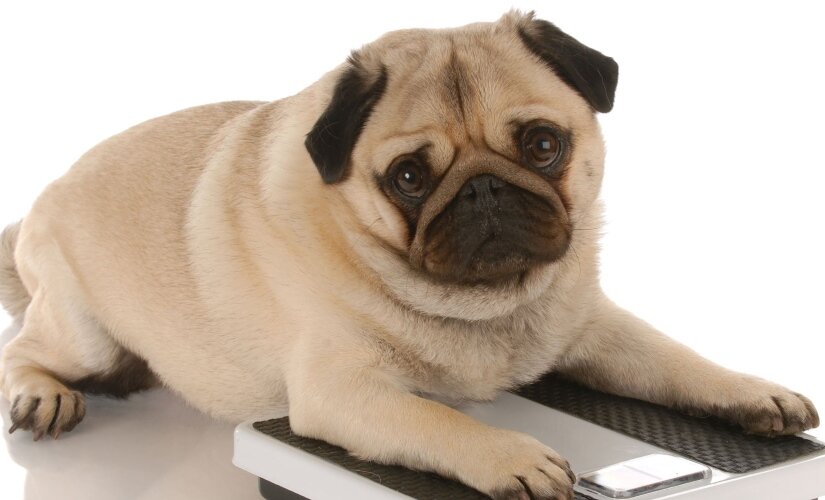You know how important it is to feed your dog a healthy diet, and you’re probably wondering if it’s okay to occasionally share some popcorn with your furry best friend.
In this blog, we’re going to see whether popcorn is a healthy snack for dogs. We’re going to give you six health risks from popcorn. You’ll need to avoid these issues, so that you can help keep your dog away from snacks that can make her gain weight or create intestinal upsets.
According to the American Kennel Club (AKC), “Popped corn kernels actually contain several minerals important to canine nutrition, like magnesium, manganese, phosphorous, and zinc, along with fiber and trace amounts of vitamins.”
Unfortunately, popcorn is sometimes loaded with fats, salt, and chemicals used when micro- waving. That said, the take here is that popcorn has numerous vitamins and minerals which are beneficial. These include the following:
- Pantothenic acid (B5)
- Thiamine (B1)
- Riboflavin (B2)
- Niacin (B3)
- Calcium
- Copper
- Magnesium
- Manganese
- Phosphorus
- Potassium
- Zinc
- Vitamins B6, A, E, and K
- Folate (B9)
So if you’re going to share some popcorn with your furry best friend, keep in mind that if it’s salted or loaded with additives and flavorings, you’ll end up losing the health benefits.
Obesity

Popcorn could also result in obesity if continuously fed. The AKC recommends plain air-popped popcorn as an occasional treat, but add that the kernels could get lodged in your dog’s teeth or could pose a choking hazard.
Health Issues with Popcorn
All dogs enjoy snacking, but too much popcorn that’s loaded with salt and oils could lead to obesity.
And worse than that, you might be teaching her a bad habit that could lead to obesity and chronic intestinal problems that will add unplanned expenses for vet visits to your dog health budget.
Your dog may look like she chews popcorn when you toss her a few pieces from your bag or bowl; however, she really uses her tongue to push the popcorn down her throat. This means your dog doesn’t get any benefit from the taste, and she could choke on the kernels.
Here are 6 Health Risks of Popcorn for Your Dog
- Butter Avoid buttered popcorn as a snack for your dog because of the saturated fat. Butter contains milk, which can be a problem for lactose-intolerant dogs.
- Salt Too much salt makes your dog extremely thirsty and can cause symptoms like diarrhea, vomiting, and seizures.
- Cheese Can dogs eat popcorn with cheese? You may like the cheddar cheese flavored popcorn for the taste; however, your dog really doesn’t care since she’s just interested in eating what’s in front of her nose. Cheese has extra salt, fat, and calories, which means it’s not a good treat for your dog.
- Oils The corn and sunflower oil used in popcorn has no nutritional benefit for your dog’s health and can add unnecessary calories and fat to her diet.
- Fat Although popcorn is light and fluffy, it still contains calories that add up when you give your dog extra snacks.
- Kernels The danger of the kernels in popcorn may be the most important reason to keep it away from your dog. Popcorn kernels can get lodged in your dog’s teeth and promote decay. The worst risk is your dog choking if popcorn gets stuck in her throat.
Nutrition Facts in Popcorn

It’s important to understand that there are two different types of popcorn, butterfly and mushroom. Butterfly popcorn is the classic snowflake kernel that we all enjoy. With this popcorn, you’ll find different types of kernel with different colors and sizes. There are also numerous ways to prepare popcorn byways of air popping, which uses hot air and steam.
Can dogs eat popcorn? The answer depends on whether your dog’s health is affected by things like added fat, sodium, oils, and carbohydrates. There is no significant amount of minerals or protein to make popcorn a healthy addition to your dog’s diet.
You can check the nutrition facts on the popcorn bag to look for unhealthy ingredients like corn oil, salt, cheese, and preservatives. Reach out to your vet before feeding controversial snacks like popcorn.
Possible Side Effects from Popcorn

If your dog ingests popcorn with certain toppings, he may suffer from digestive issues. These could include the following:
- Excessive salt may lead to dehydration
- Kidney issues from too much salt
- Diarrhea from digestive issues
- Obesity from oily toppings and long term popcorn consumption
Popcorn kernels could also injure your dog’s teeth and gums and even get stuck between their teeth. If you have a dog that guzzles popcorn, he could also choke.
So if you want to feed your dog some popcorn as a healthy snack, go ahead but make sure that it’s not loaded with flavoring, butter, cheese, or any additional toppings. Again, consult with your veterinarian before adding popcorn to your favorite dog snacks list because popcorn does pose a choking risk and could harm your dog’s teeth and gums.
Remember that you can cook popcorn in various ways with air-popped with no additives and oils or chemicals being the healthiest way. Buttery popcorn may cause your dog to vomit and result in dehydration from the excessive salt intake.
If you’re like us and spoil your dog during the holiday season with treats and tidbits from the dinner table, make sure to remind yourself that popcorn can pose a choking risk and that your dog should only consume a small amount of air-popped popcorn free of all toppings, if any at all.
You may be caught up with the holiday preparations and friends and family coming over, but keep in mind that it’s best to supervise popcorn snacks for dogs.
So next time you’re tempted to toss your furry best friend some popcorn, think twice! Although it’s not toxic, it’s probably best to feed healthy dog treats instead!

i find this very interesting and helpful it also answers my question if dogs can eat popcorn